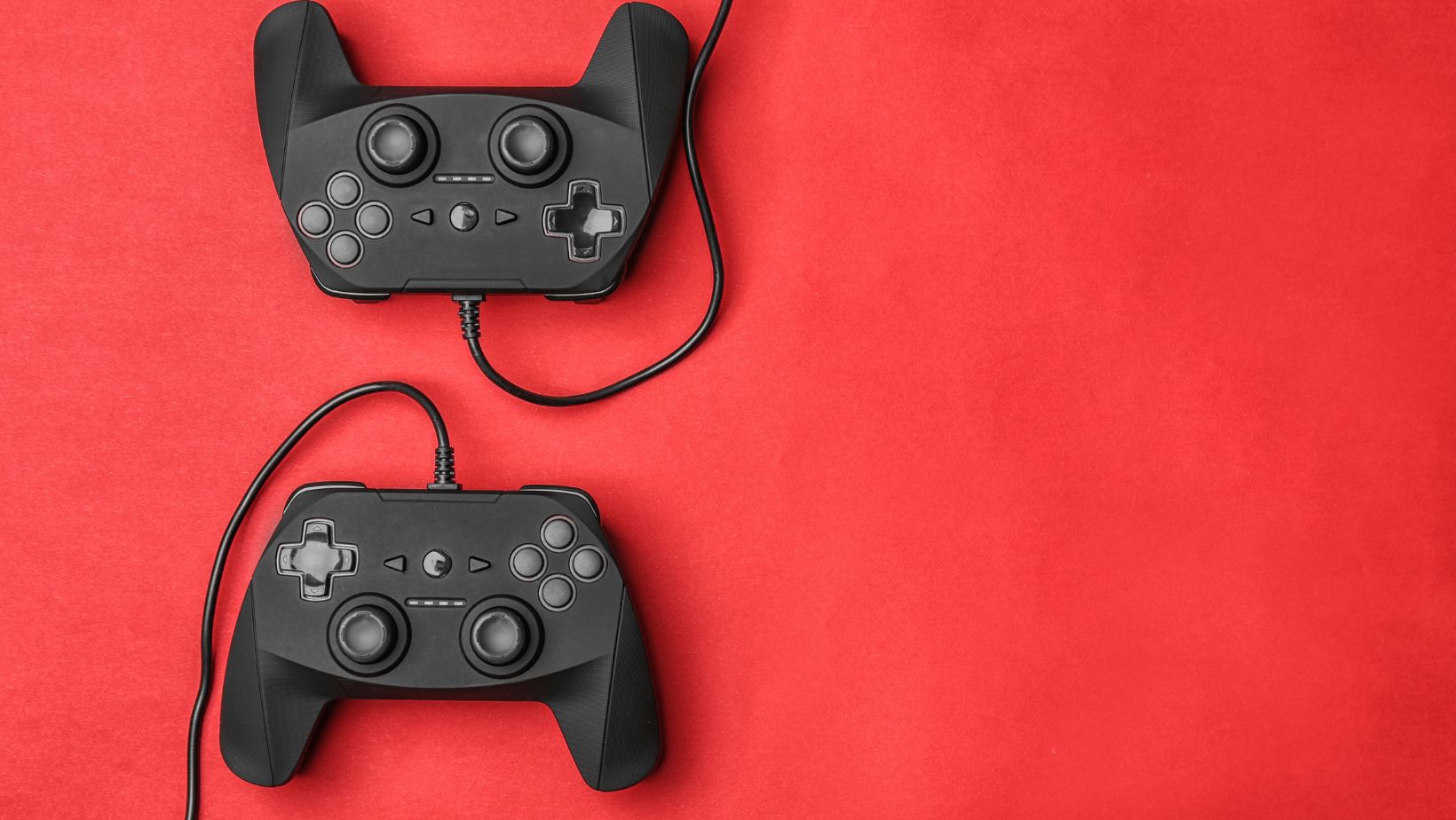Cross-platform gaming isn’t just a trend; it’s a revolution that’s transforming how players connect and compete. Imagine this: your friend on a console can finally join your epic gaming session without any awkward excuses about incompatible systems. It’s like inviting everyone to the same party, regardless of what they’re wearing—or in this case, which device they’re using.
As gaming communities grow more diverse, cross-platform play breaks down barriers and fuels friendly rivalries. It’s the ultimate way to level up your social gaming experience. Whether you’re slaying dragons or racing cars, the thrill of teaming up with friends across platforms adds a whole new dimension to the fun. So, buckle up and get ready to dive into the world of cross-platform gaming, where the only limit is your imagination (and maybe your internet connection).
Cross Platform Gaming
Cross-platform gaming enables players on various devices to engage and compete without limitations. This innovative approach fosters an inclusive environment, where friends can connect in gaming sessions regardless of their consoles or systems. Players enjoy seamless interactions, whether they’re on PCs, PlayStation consoles, Xbox devices, or mobile platforms.
The rise of cross-platform features directly enhances the gaming landscape. Developers now prioritize creating multiplayer experiences that unite communities. Popular titles like “Fortnite,” “Rocket League,” and “Call of Duty: Warzone” showcase successful implementations of cross-play functionality. Each of these games has attracted diverse audiences, significantly expanding their player bases.
Communities formed around cross-platform gaming thrive on collaboration and creativity. Players can share strategies, tips, and experiences, enriching their overall gaming experience. Social interactions often extend beyond in-game performance, leading to lasting friendships.
In addition to social benefits, cross-platform gaming has economic advantages. Game developers can maximize their reach, reducing fragmentation in player communities. This unification can lead to higher revenue streams since more players can access the same games together.
As the gaming industry grows, the demand for cross-platform options continues to rise. Players increasingly expect the ability to team up across devices, and companies are responding with robust cross-play support. Such changes represent the gaming community’s dynamic evolution, illustrating a shift toward a more connected and inclusive future.
Benefits Of Cross Platform Gaming

Cross-platform gaming offers several advantages, significantly enhancing the gaming experience for players. Players enjoy a more connected environment that fosters competition and cooperation.
Enhanced Player Base
More players can join games across various devices, increasing the overall player base. This expanded audience allows for quicker matchmaking and shorter wait times, creating more engaging gaming sessions. Popular titles like “Fortnite” and “Call of Duty: Warzone” demonstrate this phenomenon by merging players from different platforms. A broader player base improves the game’s ecosystem, ensuring that matchmaking remains balanced and competitive. Players meet others from diverse backgrounds, leading to more enjoyable and varied interactions in gaming communities.
Improved Game Longevity
Games thrive longer in a cross-platform environment thanks to the growing user base. Developers benefit from a constant influx of players, allowing them to maintain and update their games without losing relevance. Continuous updates and community engagement keep players invested in the gaming experience. Titles with cross-platform capabilities, like “Rocket League,” often sustain popularity for years due to their inclusive nature. As more players remain active, developers gain insights into player preferences, further enhancing game features and experiences. This longevity translates into financial benefits, maximizing returns on investments made by game developers.
Challenges Of Cross Platform Gaming
Cross-platform gaming faces several challenges that can impact player experience and community cohesion.
Technical Compatibility Issues
Technical compatibility issues often arise when connecting different gaming platforms. Differences in hardware capabilities can lead to performance disparities during gameplay. Some games may not function equally well on all devices, affecting graphics and response times. Additionally, variations in APIs and system updates can disrupt seamless play between platforms. Developers must consistently address these complexities to ensure high-quality gaming experiences for all players.
Community Fragmentation
Community fragmentation presents another significant challenge in cross-platform gaming. Players may experience divides due to varying gaming experiences on different consoles and devices. Those on advanced hardware may dominate competition, creating an imbalance. Language barriers and communication issues can further isolate groups within the gaming community. Developers play a crucial role in mitigating these challenges by fostering inclusivity and encouraging social interactions across platforms.
Popular Cross Platform Games
Cross-platform gaming continuously evolves, showcasing a wide range of genres and titles that attract diverse audiences. Players engage across various platforms, enhancing the gaming experience.
Game Genres That Support Cross Play
Popular game genres embracing cross-play include battle royale, first-person shooters, and sports games. These categories maximize player participation with titles that feature large, vibrant communities. Furthermore, RPGs and racing games are increasingly integrating cross-platform functionalities, expanding gameplay opportunities for friends regardless of their preferred gaming device.
Major Titles Leading The Charge
Prominent titles leading the charge in cross-platform gaming include “Fortnite,” “Apex Legends,” and “Minecraft.” Each game’s ability to unify players across different consoles enhances engagement. Also notable are “Call of Duty: Warzone” and “Rocket League,” both recognized for their seamless integration of cross-play features. These games not only broaden their player bases but also encourage social interactions within their communities.
Future Of Cross Platform Gaming
The landscape of cross-platform gaming continues to evolve, shaped by ongoing technological advancements and player demand.
Technological Innovations
Innovations in cloud gaming significantly enhance cross-platform capabilities. Players enjoy seamless gameplay across devices, as cloud services minimize hardware limitations. Improved cross-platform tools simplify the integration process for developers, enabling them to implement cross-play features with greater ease. Additionally, advancements in game engines allow for more consistent performance across various platforms, addressing compatibility issues. Developers increasingly utilize artificial intelligence to refine matchmaking processes, ensuring balanced gameplay experiences across diverse consoles and PCs. As these technologies improve, players can expect richer interactions and enhanced social features in their favorite games.
Industry Trends And Predictions
Industry shifts indicate a bright future for cross-platform gaming. Reports show that 70% of gamers express interest in playing with friends on different devices. Developers prioritize cross-play functionality to meet this demand, driving a surge in new titles supporting these features. Analysts predict that by 2025, over 50% of multiplayer games will offer cross-platform play, further bridging community gaps. The focus on inclusivity not only attracts larger audiences but also encourages innovative gameplay experiences across studios. As connectivity continues to improve, the gaming environment grows more vibrant, fostering collaboration and creativity among players worldwide.
Social Interactions and Collaborative Gameplay
Cross-platform gaming represents a significant shift in the gaming landscape. It breaks down barriers and fosters a sense of community among players regardless of their devices. The ability to connect and compete enhances the gaming experience, making it more inclusive and engaging.
As developers continue to innovate and address the challenges of cross-play, the future looks promising. The demand for cross-platform options is growing, and with it comes the potential for richer social interactions and collaborative gameplay. This evolution not only benefits players but also opens new avenues for developers to thrive in a competitive market. Embracing this connected future will undoubtedly shape the way gaming is experienced for years to come.
